Shenzhen, May 17-18, 2025 — The 2025 Tsinghua PBCSF Global Finance Forum convened in Shenzhen, bringing together nearly hundred distinguished political and economic leaders, renowned scholars, and industry experts from across the globe. Hosted in the heart of the Greater Bay Area, the forum served as one of the pivotal platforms for dialogue on fostering global economic resilience and sustainable development.
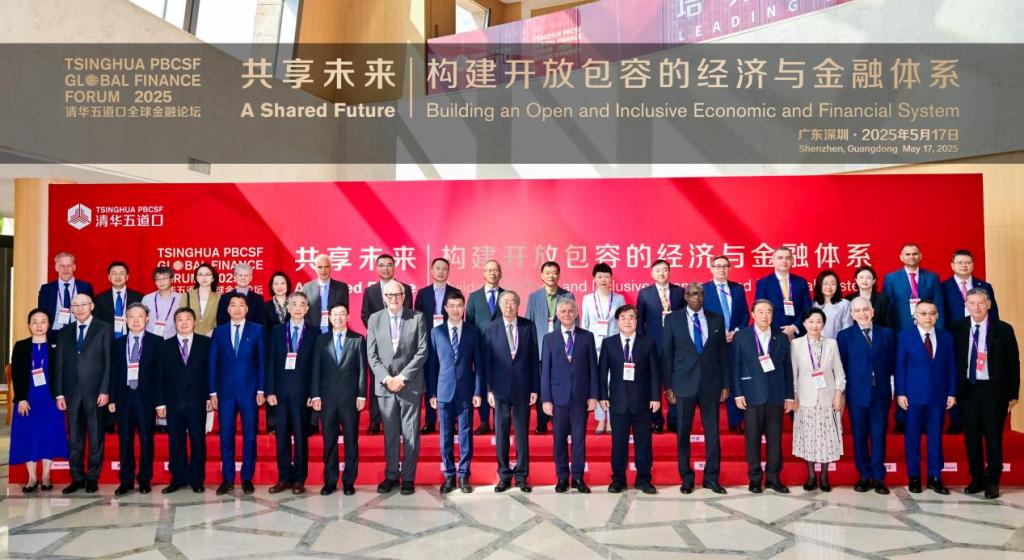
Photo: Group Picture
Under the overarching theme “A Shared Future: Building an Open and Inclusive Economic and Financial System,” the event featured 13 thematic sessions and 2 closed-door roundtables, addressing pressing challenges such as the evolution of the global monetary architecture, international trade dynamics, economic fragmentation, and demographic shifts etc.
Keynote Perspectives
Mr. ZHOU Xiaochuan, former Governor of the People’s Bank of China and Vice Chairman of the 12th National Committee of the CPPCC, delivered a keynote address titled “A Future-Ready International Monetary System”, at the welcome dinner. He underscored the necessity of a multipolar monetary framework, asserting that diversity in global financial systems enhances stability, security, and adaptability in an interconnected world.
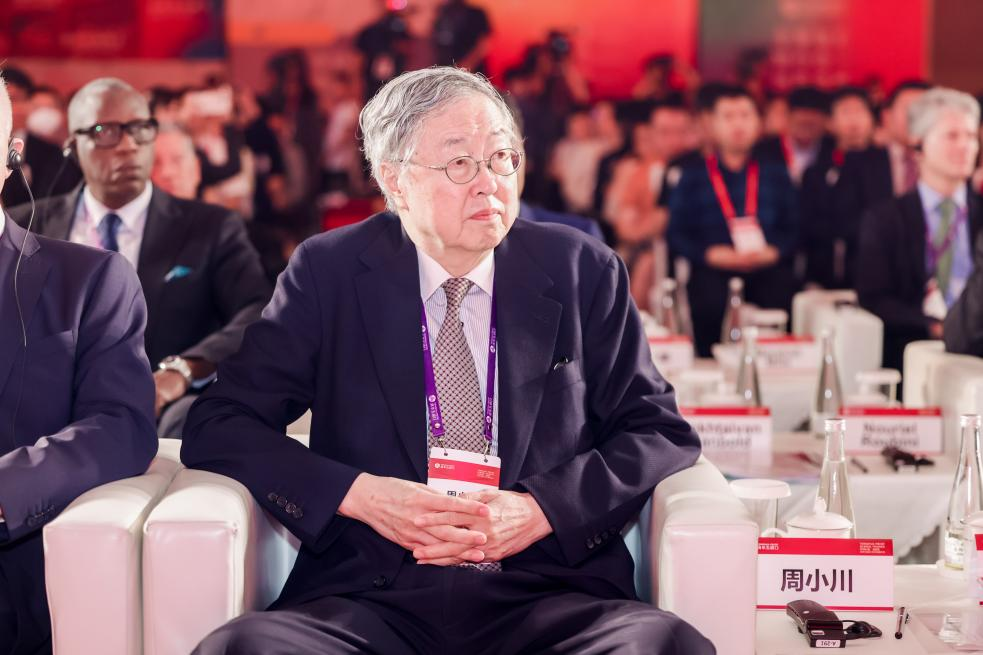
Photo: ZHOU Xiaochuan at the Opening Ceremony
In his opening remarks, GUO Yong, Deputy Secretaries of the CPC Tsinghua University Committee, emphasized that, amid accelerating global transformations and economic uncertainties, China is leveraging the certainty of its high-quality development to serve as a stabilizing anchor for the world economy, while demonstrating "China's strength" through its commitment to building a financial powerhouse.
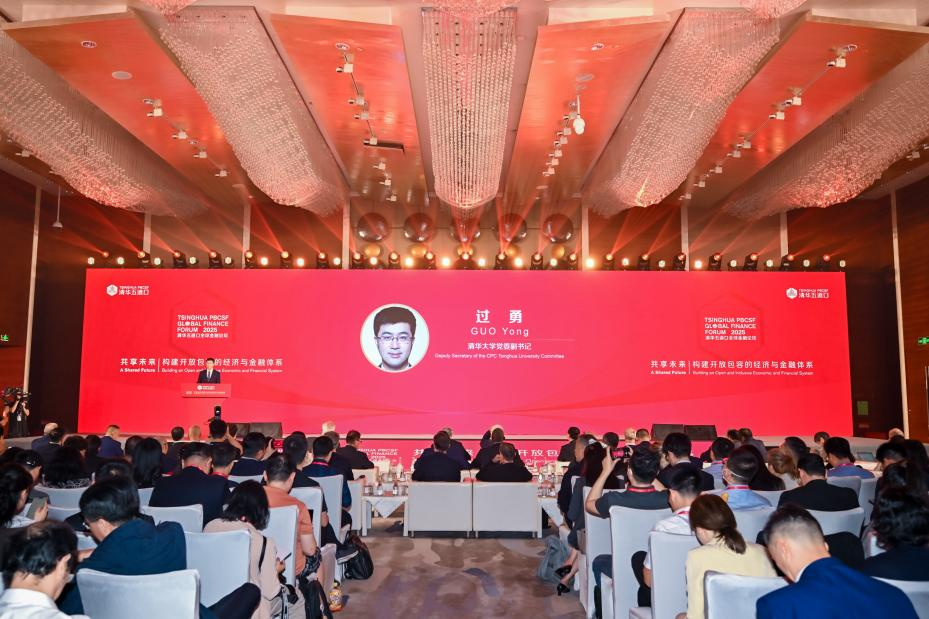
Photo: GUO Yong
Prof. JIAO Jie, Dean of Tsinghua University PBC School of Finance, highlighted the imperatives of fostering openness and inclusivity in global economic governance. “As structural headwinds persist, China is transitioning from a participant to an architect of global financial norms, driving progress through innovation in productive forces and strategic policy frameworks,” he remarked.
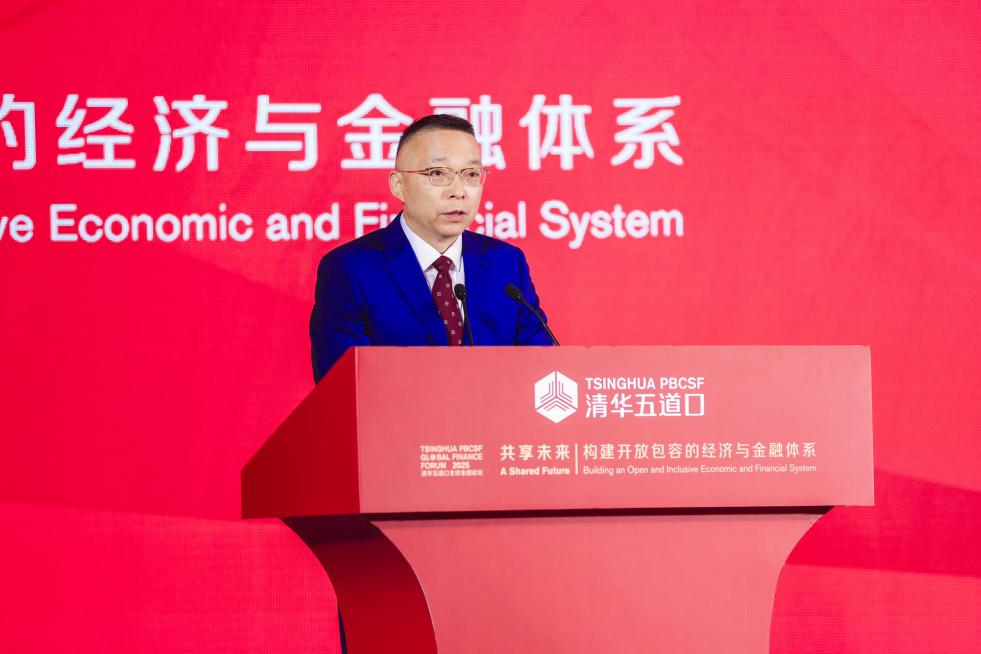
Photo: JIAO Jie
Marek Belka, former Prime Minister of Poland, analyzed mounting geopolitical and economic imbalances, particularly within U.S. domestic structures, and cautioned against spillover effects on Europe’s fragile stability. He holds a positive outlook on China's development and believes that China has become a key manufacturer and exporter in the global technology sector.
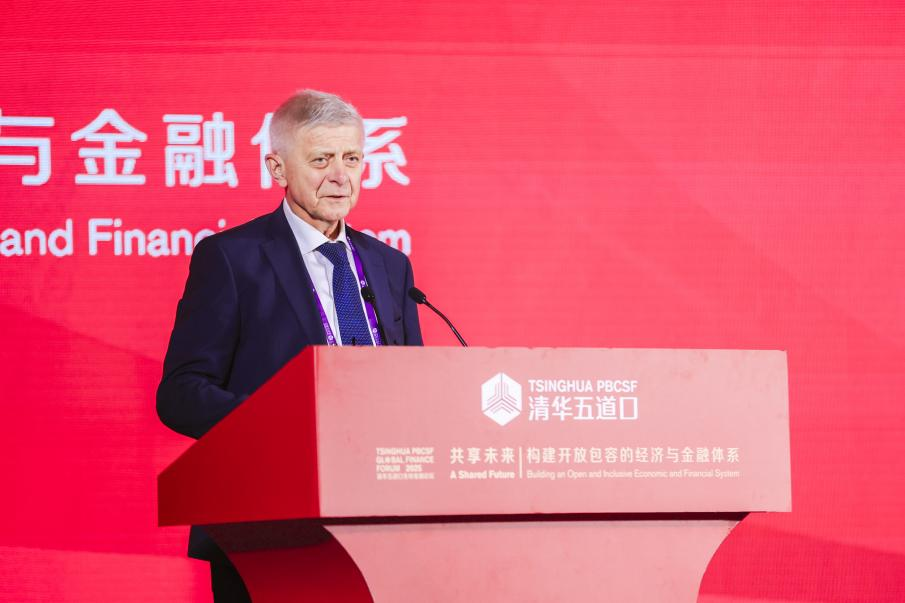
Photo: Marek Belka
Nobel laureate Michael Spence, joining virtually, decried trade wars as counterproductive and advocated for renewed multilateralism. “A collaborative framework led by Europe, China, and emerging economies offers the most viable path to equitable growth,” he asserted. On artificial intelligence, he highlighted China’s rapid advancements, including breakthroughs like DeepSeek, and stressed the need for inclusive AI governance.
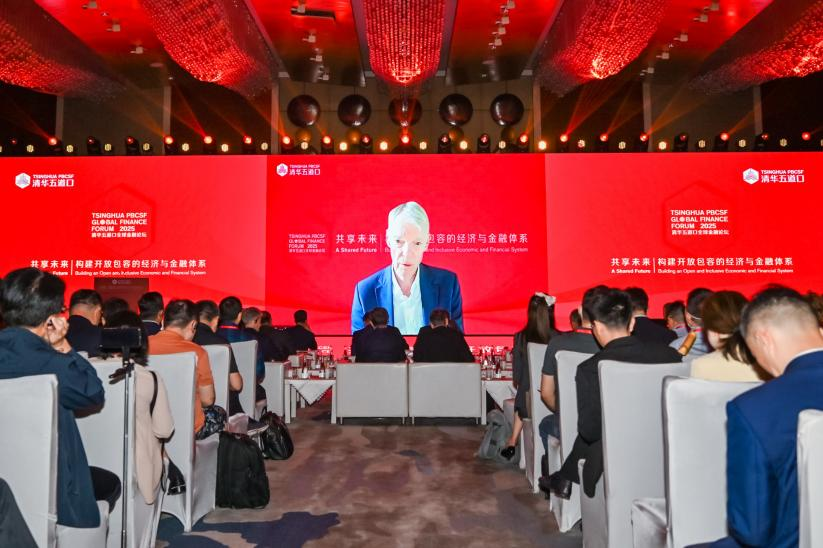
Photo: Michael Spence
Reinventing Multilateralism and Financial Architecture
During panel on monetary reform, Lord Mark Malloch-Brown, former UN Deputy Secretary-General, critiqued U.S. unilateralism and tariff policies for exacerbating global instability. He urged emerging economies to actively reshape multilateral institutions rather than remain reactive.
Erik Berglöf, Chief Economist of the Asian Infrastructure Investment Bank, emphasized the inevitability of a multipolar trade order, while Marc Uzan, Executive Director of the Reinventing Bretton Woods Committee, called for enhanced regional integration in Asia through cross-border infrastructure and reformed financial rules.
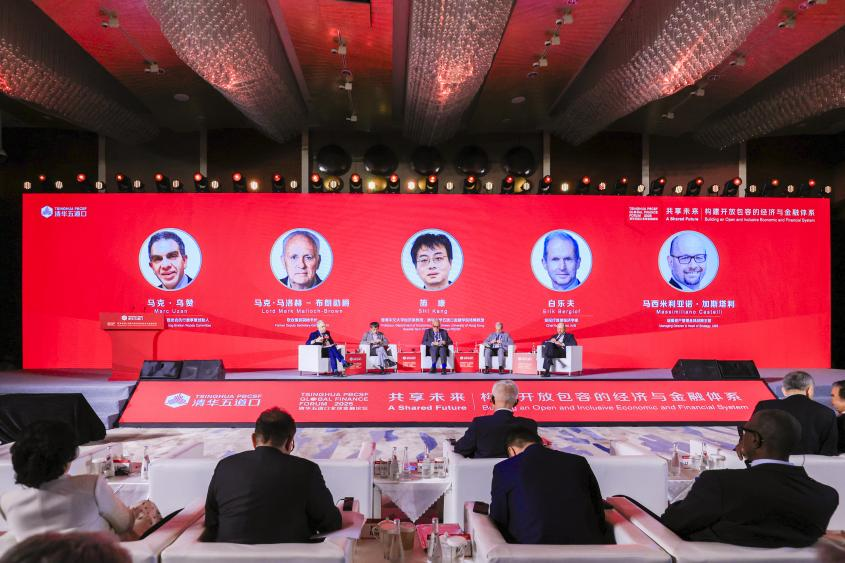
Photo: Session I
Strengthening Financial Resilience
A closed-door session on systemic risk mitigation highlighted the urgency of adopting proactive safeguards. ZHOU Yanli, former Vice Chairman of the China Insurance Regulatory Commission, acknowledged China’s strides in financial security but warned against complacency, urging continuous innovation in risk management frameworks.
Strategic Reports and Policy Priorities
Tsinghua PBCSF released the 2025 China Financial Policy Report. Dr. Ding Zhijie, Director of the PBoC Financial Research Institute, stressed the needs to accelerate financial reforms amid mounting external pressures. Mr. Wang Yiming, Vice Chairman of the China Center for International Economic Exchanges, dissected U.S. tariff strategies and advocated for structural reforms to bolster China’s domestic demand and technological competitiveness.
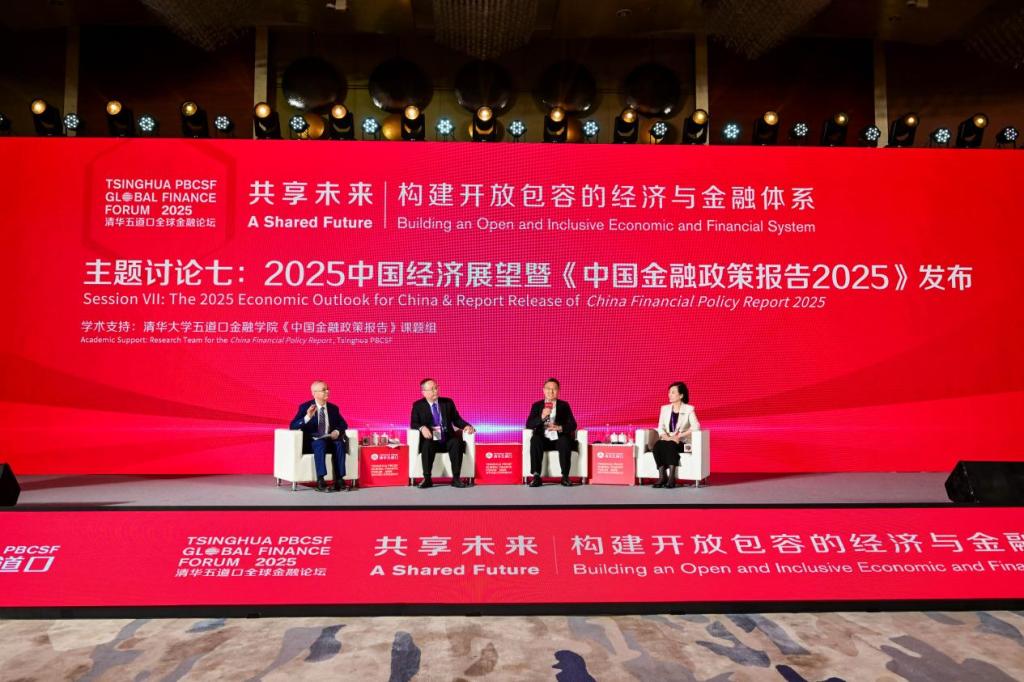
Photo: Session VII and Report Release
Driving Innovation and Sustainability
Mr. HUANG Qifan, former Mayor of Chongqing, positioned industrial internet development as the cornerstone of tech-finance synergy, urging stakeholders to harness big data and AI for equitable SME financing.
Mr. MA Weihua, Chairman of National Technology Transfer and Commercialization Fund, outlined policy measures to bridge innovation funding gaps and align market incentives with national priorities.
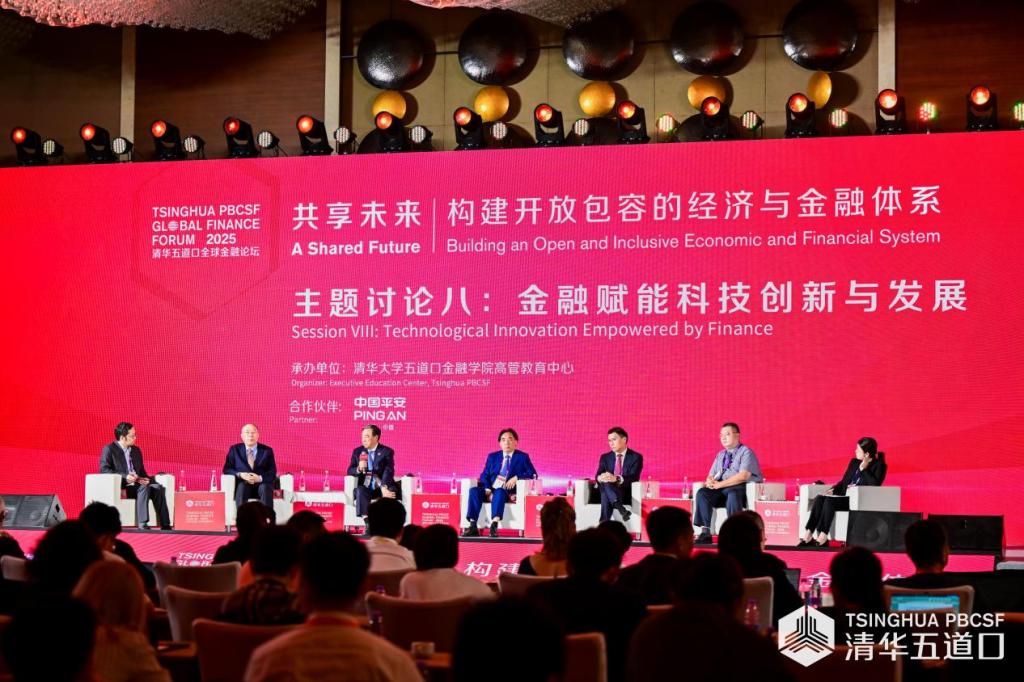
Photo: Session VIII
Additionally, during the discussion on "International Trade and Investment Under New Circumstances," Hu Xiaolian, former Chairman of the Export-Import Bank of China and Vice Chairman of the China Center for International Economic Exchanges, proposed three "rebalancing" insights into the future trajectory of global trade and investment.
Nan Li Collins, UN Sustainable Stock Exchanges Initiative and Senior Director of Division on Investment and Enterprise at UN Trade and Development, emphasized that in an era marked by imbalanced globalization and widening inequality, the digital economy must be driven by inclusive policies to foster balanced development in the digital and intelligent age, bridge the digital divide, and ensure equitable sharing of digital dividends.
In green finance discussions, Prof. JU Jiandong proposed leveraging South-South cooperation to offset weakening climate commitments in advanced economies. Luiz Pereira da Silva, former Deputy Governor of Brazil’s Central Bank, advocated for multilateral mechanisms to quantify climate financing needs and reduce emerging markets’ access barriers.
Global Engagement and Legacy
The forum’s agenda spanned 15 critical issues from AI-driven finance to aging demographics, featuring 13 Sessions and 2 closed-door roundtables , generating actionable insights for policymakers. Media engagement reached 113 outlets—including 22 Chinese state media and 17 international platforms—broadcasting discussions to a global audience.
Closing Reflections
Established itself as a cornerstone of global financial discourse since its inception in 2014, the 2025 forum concluded on May 18. By bridging academic rigor, policy innovation, and industry expertise, it continues to shape China’s vision for a resilient, high-quality financial ecosystem and a more inclusive global economy, and explores new ideas, emerging trends, innovative practices, and dynamic drivers in global finance.